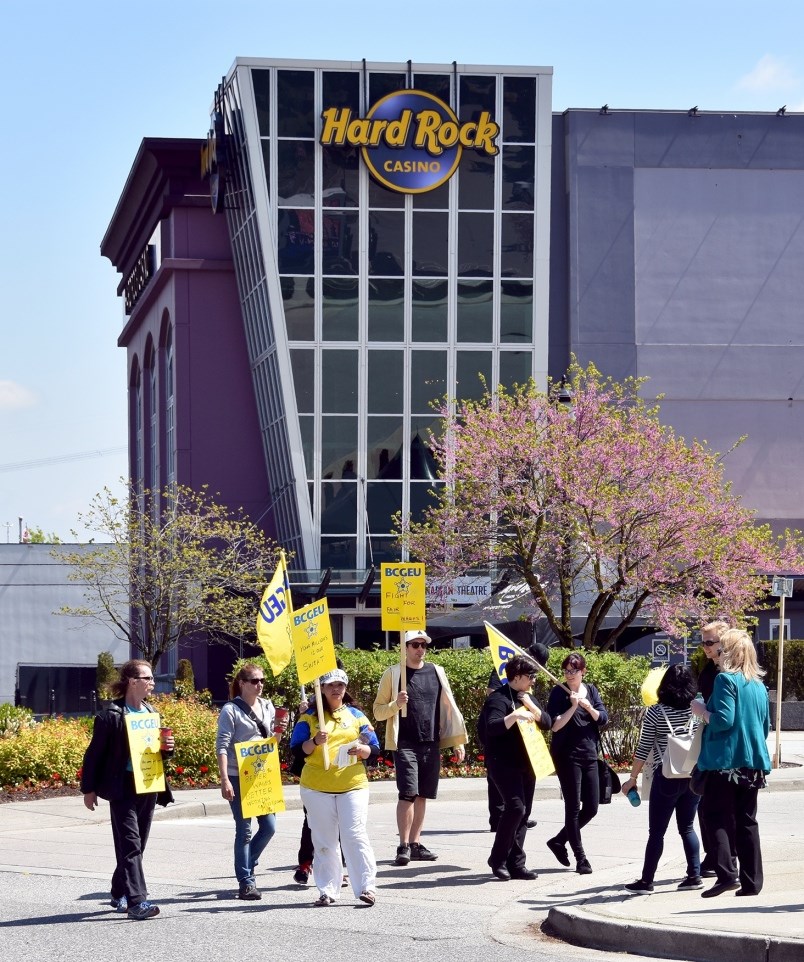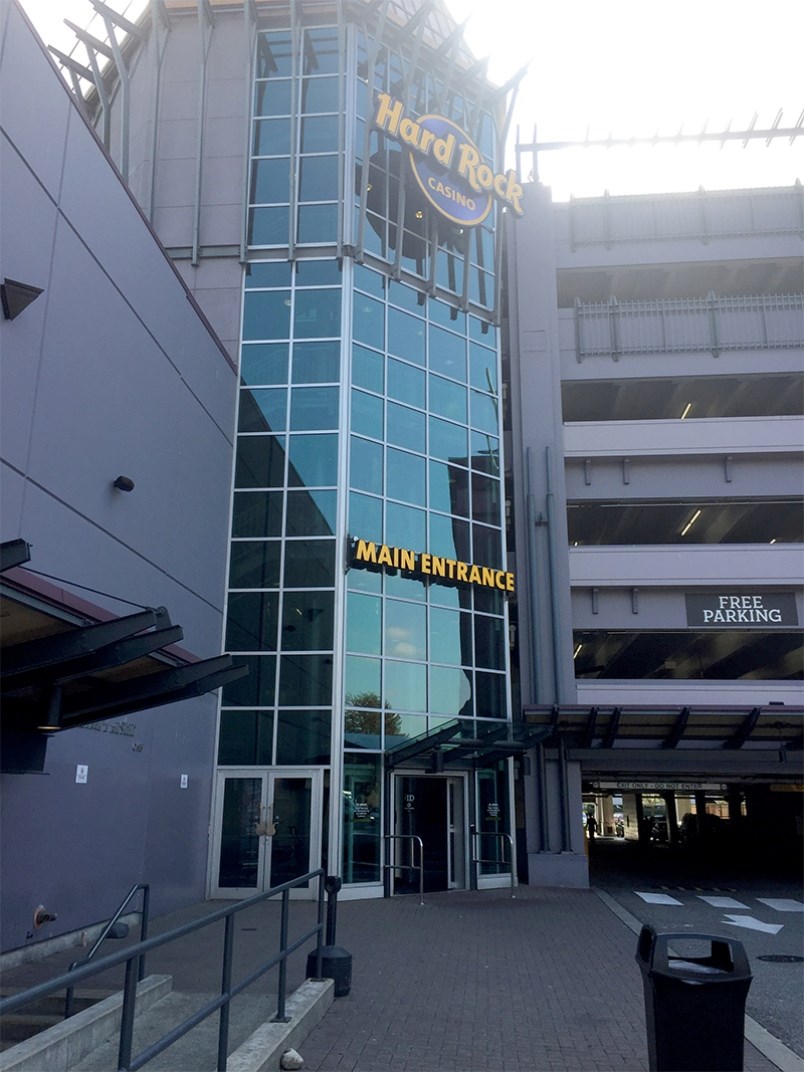A drop in VIP gambling at the Hard Rock Casino could have budget repercussions for the city of Coquitlam.
The most recent financial statements from Great Canadian Gaming (GCG), which owns the Hard Rock Casino Vancouver in Coquitlam and the River Rock Casino in Richmond, showed the quantity of gambling chips purchased fell 12.5% to $282.8 million in the first quarter compared to last year.
Because Coquitlam receives 10% of Hard Rock revenues through its casino operating agreement, Michelle Hunt, the city’s manager of finance and technology, said the city would be closely monitoring GCG’s financial reports in the coming months.
“We are not adjusting anything at this point,” she said. “We will monitor it through the next quarter.”
Since the casino opened in 2002, Coquitlam has received more that $131 million through the operating agreement.
Of that revenue, 12.5% is dedicated to the community capital fund, which operates the city’s tourism and Spirit Grant programs. As well, over the last 17 years, the city has awarded $8.5 million in casino funds to more than 200 community organizations for projects in the municipality.
In 2019, the city is budgeting $7.7 million in revenue from the casino although, last year, it budgeted the same amount and received $7.4 million.

According to GCG CEO Rod Baker, the decrease in Hard Rock earnings is largely attributed to a labour dispute that began when workers walked off the job last May. Picket lines were set up outside the Coquitlam casino for six weeks before an agreement was reached between the union and the company.
GCG is also grappling with new rules introduced last year as part of the provincial government’s efforts to crack down on money laundering. The regulations, enacted by the B.C. Lottery Corporation in January 2018, require casinos to gather detailed financial information on the source of player funds on all transactions over $10,000.
Documents obtained by The Tri-City News last September through a freedom of information request found Hard Rock accepted $2.5 million in cash transactions over $10,000 from gambling patrons between 2016 and 2017, before those rules came into effect.
While acknowledging in a conference call with investors earlier this month that the company has had to adjust to the new rules, particularly at River Rock, Baker said Hard Rock’s difficulties started with the labour dispute.
“We are still having challenges rebuilding the table side of the business at Hard Rock,” he said during a conference call with investors earlier this month. “Those challenges year over year continue to remain.”
The documents obtained by The Tri-City News last year found that compared to River Rock, where $13.5 million in cash was accepted in a single month in 2015, the number of large cash transactions in Coquitlam was relatively small.
Still, some high rollers with wads of cash spent big money, mostly from unknown sources, at the Hard Rock in 2016/’17. Some $57,000 in suspicious cash transactions were recorded in 2015, with amounts ramping up to $1.48 million in 2016 and $1.051 million in 2017. On Jan. 7, 2016, for example, someone made a cash buy-in to play at a high-limit table with $70,020 in $20 bills and later topped that up with a further $2,000 in $20 bills.



